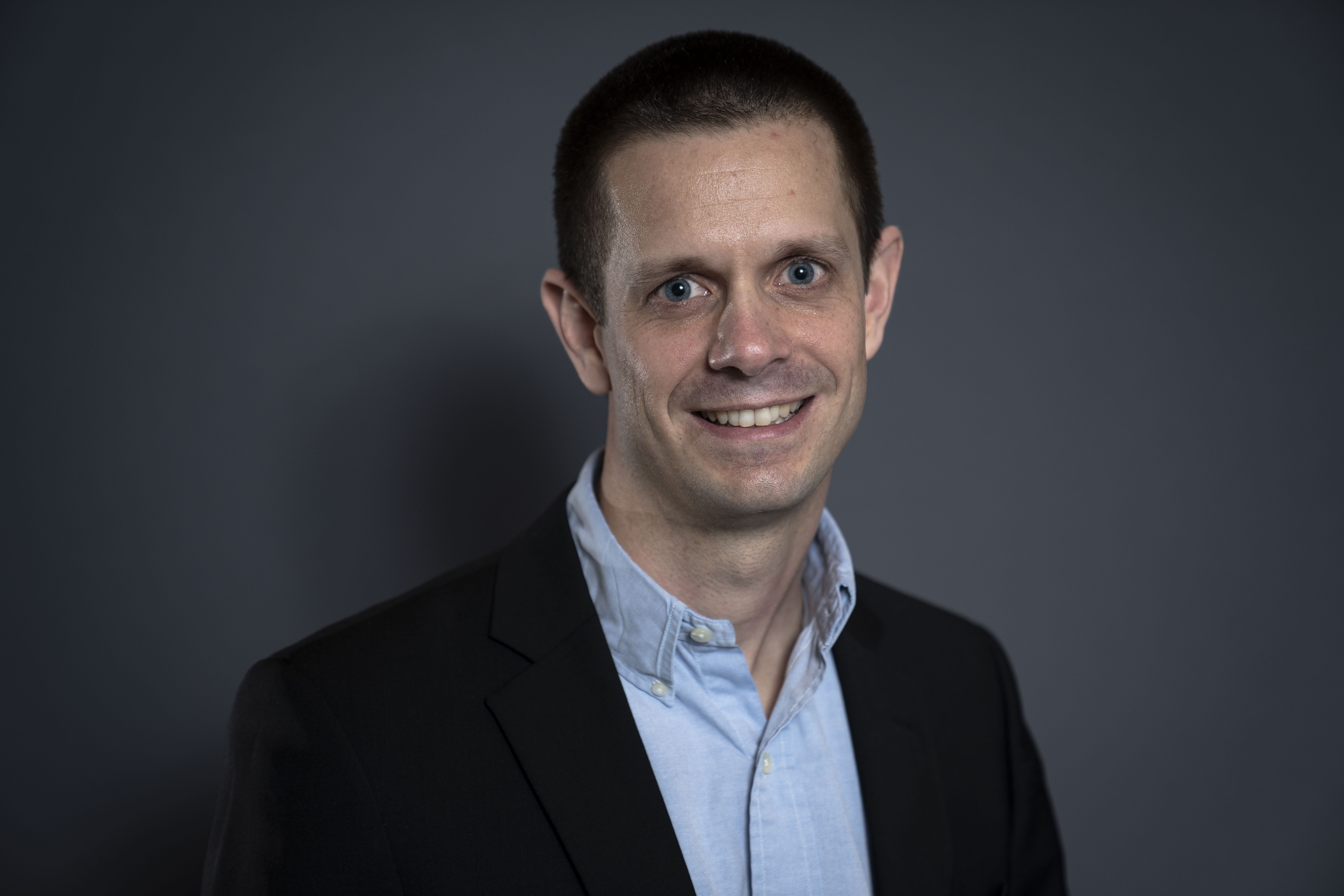Søren Kramer
Research leader

Project title
Asymmetrisk C-H funktionalisering for hurtigere medicinsyntese
What is your project about?
Most pharmaceuticals are made by organic chemistry and catalysis – these are the research fields that I work with. For more than half of the approved pharmaceuticals, the active pharmaceutical ingredient can exist in two forms that are mirror images of each other. Often, the two mirror image forms exhibit very different biological activities; one mirror image form can be an efficient medicine, while the other is toxic. In theory, a concept termed asymmetric catalysis can provide direct access to a pure mirror image form; however, in practice, there is a lack of methods for many essential pharmaceutical motifs. In my project, I will combine asymmetric catalysis with a new concept, C-H functionalization. This synergistic combination will provide significantly faster and selective access to a pure mirror image form of many important pharmaceutical motifs and at the same time minimize waste of precious resources. The project holds potential to accelerate development and production of new pharmaceuticals.
How did you become interested in your particular field of research?
In high school, I had a very enthusiastic and skilled chemistry teacher. Through his teaching, I became fascinated by the way that chemistry is essential for our modern society and how you can explain many everyday phenomena based on a knowledge of chemistry. Therefore, I chose to enroll in the medicinal chemistry program at Aarhus University. There, I became captivated by organic chemistry, in particular, how it is applied to make the majority of the medicine that is available today. During my education, I worked with organic chemistry and catalysis with some very talented and enthusiastic people in research groups at Aarhus University and in USA and France. After completing my PhD degree, I did a two-year research stay in USA (Caltech), where I gained experience with asymmetric catalysis and also obtained a deeper understanding of the way that chemical reactions proceed. Now, I combine all these elements in my current research, where I stay very motivated by the fact that my research is beneficial for society, for example by accelerating the development of new pharmaceuticals in a sustainable and cost-efficient way.
What are the scientific challenges and perspectives in your project?
My research focuses on the development of new chemical reactions of relevance to the pharmaceutical industry. In this project, there are two big challenges that must be solved simultaneously in order to ensure that the novel chemical reaction will have broad applications. Firstly, we have to break a strong carbon-hydrogen bond in the starting materials of the chemical reaction. Then, we must achieve high selectivity for the desired mirror image form of the product from the chemical reaction. Both challenges are difficult by themselves, and in my project, they must be solved simultaneously. This is a great challenge that I look forward to addressing.
What is your estimate of the impact, which your project may have to society in the long term?
First of all, my project will contribute with a chemical method that can accelerate the development of new pharmaceuticals. This means that it will be possible to shorten the time it takes from starting out a new pharmaceutical campaign to the developed pharmaceutical hits the market. Currently, the development of a new pharmaceutical often takes more than 10 years. In comparison to the methods used in the pharmaceutical industry now, my method will also have advantages from a sustainability and economical point of view. Accordingly, in the long run, the project holds potential not only to accelerate the development of new pharmaceuticals but also to minimize the environmental burden and maybe even lower the cost of the pharmaceuticals.
Which impact do you expect the Sapere Aude programme will have on your career as a researcher?
The Sapere Aude program provides me the opportunity to immerse myself in at topic that I am deeply passionate about and that will greatly benefit society. The grant provides me the resources to expand my research group, thus enabling us to tackle the high-impact challenges in this project and allowing us to play ball with the best in the world. Finally, the Sapere Aude program is a very prestigious recognition which will help attract the best researchers, collaborators, and future research funding. In combination, these aspects will ensure that my research team – also in the future – will reside at the highest level of research.
Background and personal life
I am a strong believer in having a good work/life balance. So, when I am not working, I spend most of my spare time with my family. I also enjoy working out and travelling.
View all research leaders here
Research institution
Technical University of Denmark
Research field
Chemistry
City of your current residence
Herlev
High school
Aabenraa Gymnasium og HF
